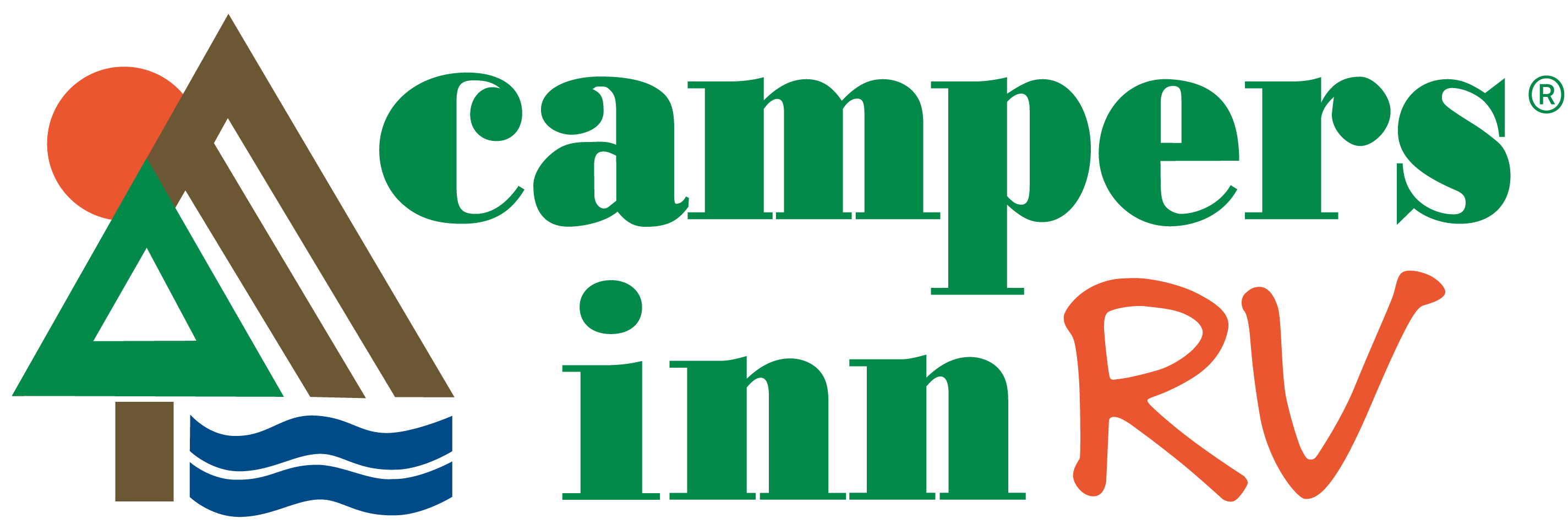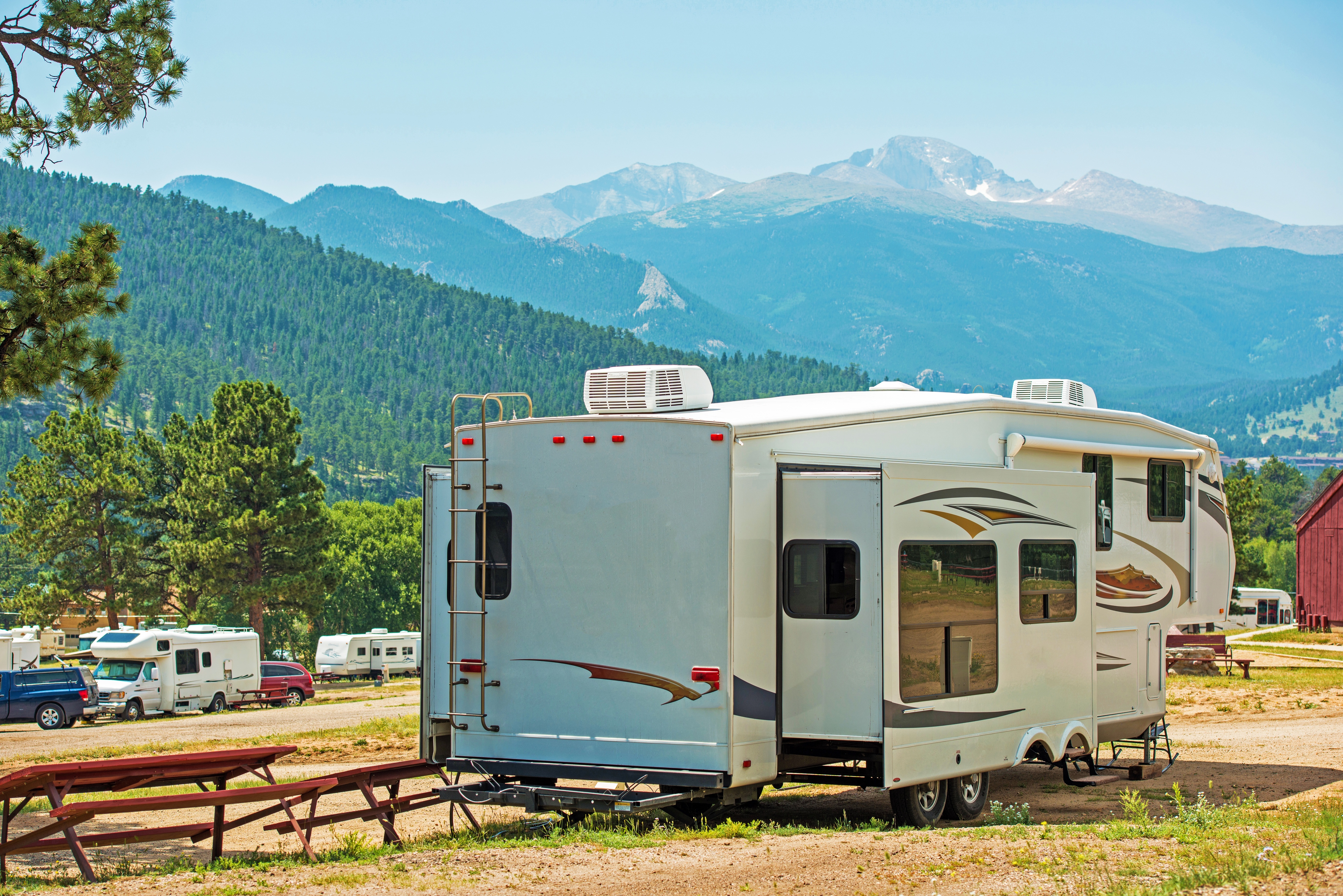
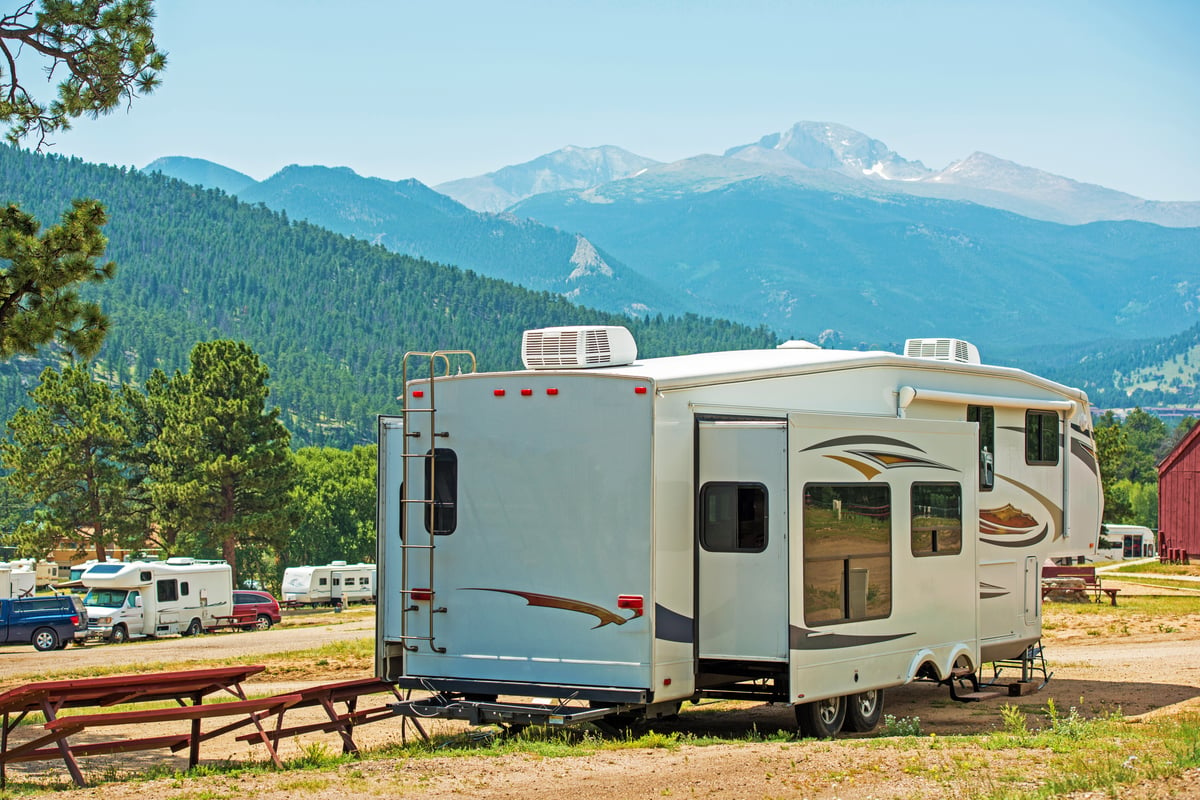
As RVers, we always want to be sure we are protecting nature and the beautiful world we live in. There's nothing like a pure, scenic piece of land to serve as a serene backdrop for your RV camping trips, and we want those views to be around tomorrow. The RV industry has made some "green" advancements and there is sure to be much more progress in the future. Here are some facts about "green" RV travel and ways we can lower our environmental impact while on the road.
Did You Know?
- RV vacations are more environmentally friendly than other types of vacation travel. Families of four taking RV vacations generate less carbon dioxide than families traveling on a plane, renting a car and staying in a hotel. (Go RVing)
- Approximately ten million households now own an RV. (RVIA)
- RV owners spend an average of 4,500 miles and 28-35 days traveling annually.
- A standard RV uses only 27 gallons of water a day, whereas a household consumes 150 gallons a day. An on-board washing machine uses only five gallons of water, and an on-board toilet uses approximately three cups, or one-fourth the water of a 1.6 gallon low-flush toilet.
- Almost 20 percent of RVers say they use solar panels to power some of their on-board systems.
- 94 percent of all RVers travel with two to seven people. Carpooling is a great way to reduce your carbon footprint.
- A recent survey showed that more than two-thirds of RVers minimize their water usage on trips.
- Almost half of all RVers recycle more on RV vacations than on any other type of vacation, and nearly half turn off home utilities before they hit the road.
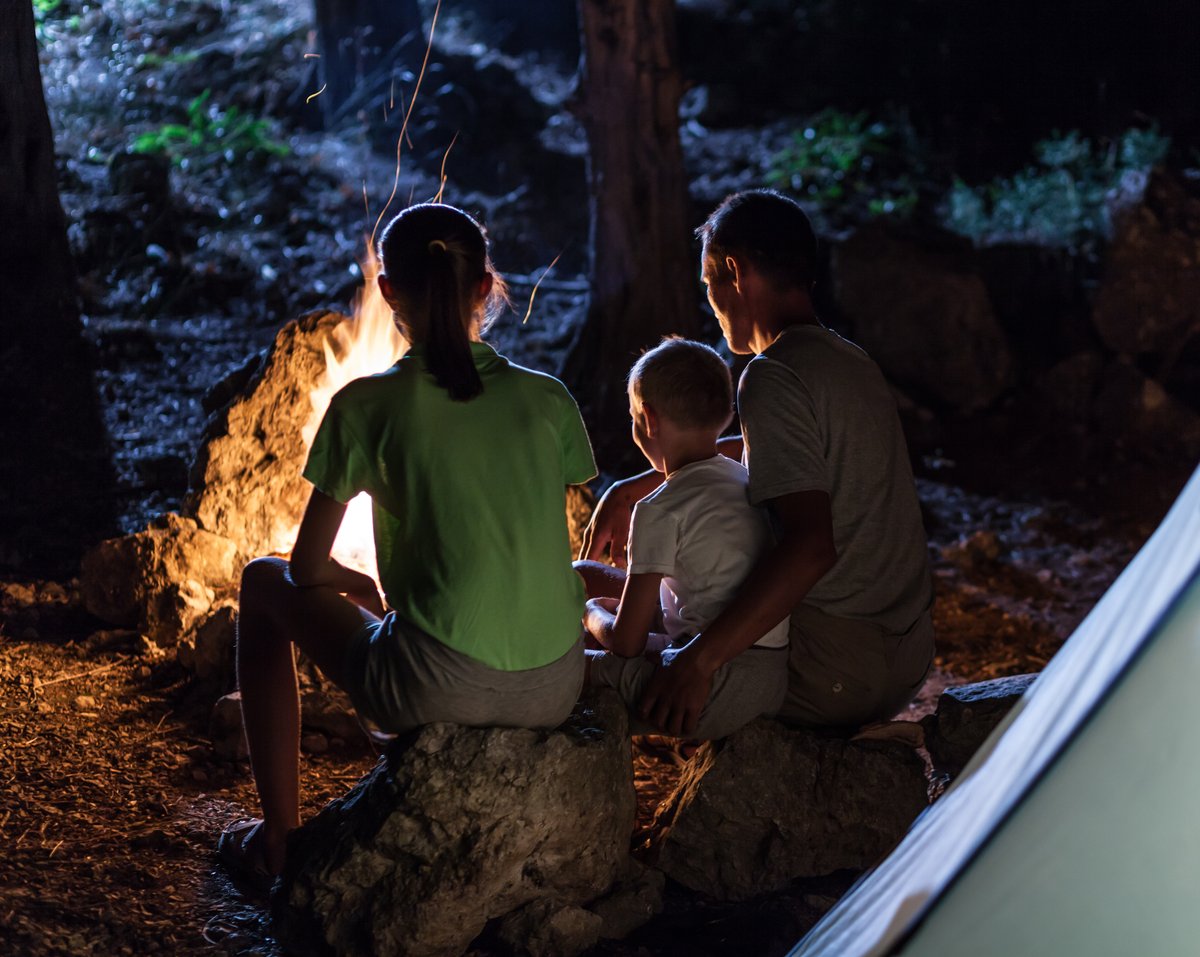
Best Practices for Green RV Travel
- Remember to turn off your utilities and energy sources before leaving for your camping trip, especially if you will be gone for an extended amount of time.
- Keep RV and tow vehicle engines well-tuned to conserve energy and reduce carbon emissions. Click here to learn more about maintaining your RV.
- Always use marked RV campsites so you don't damage natural habitats.
- Recycle as you travel and at the campgrounds you stay at.
- Minimize the use of disposable bottles, cups, dishes and utensils. Despite the convenience and ease of disposable products, they create extra waste that can easily be prevented.
- Use nontoxic cleaning supplies and tank additives.
- Prepare your own meals using fresh ingredients to reduce trash from instant and microwavable meals. If you're interested in learning more about cooking while on the road, click here.
- Leave your campground just the way you found it or better.
- Keep campfires small to reduce the amount of ash and pollution. Don't put anything into the fire pit that will not burn, such as plastics, foils and metals. Observe fire rules, which may change with weather conditions.
- Work with nature. In hot weather, use natural shade, awnings and canvas covers. In cold weather, park where the RV will be protected from high winds.
- Refuse, reduce, reuse, repair, and recycle. Refuse unnecessary items or disposable packaging. Reduce the amount of trash you produce. Reuse the things you can. Repair broken items instead of sending them to a landfill. Recycle the things you can't reuse or repair.
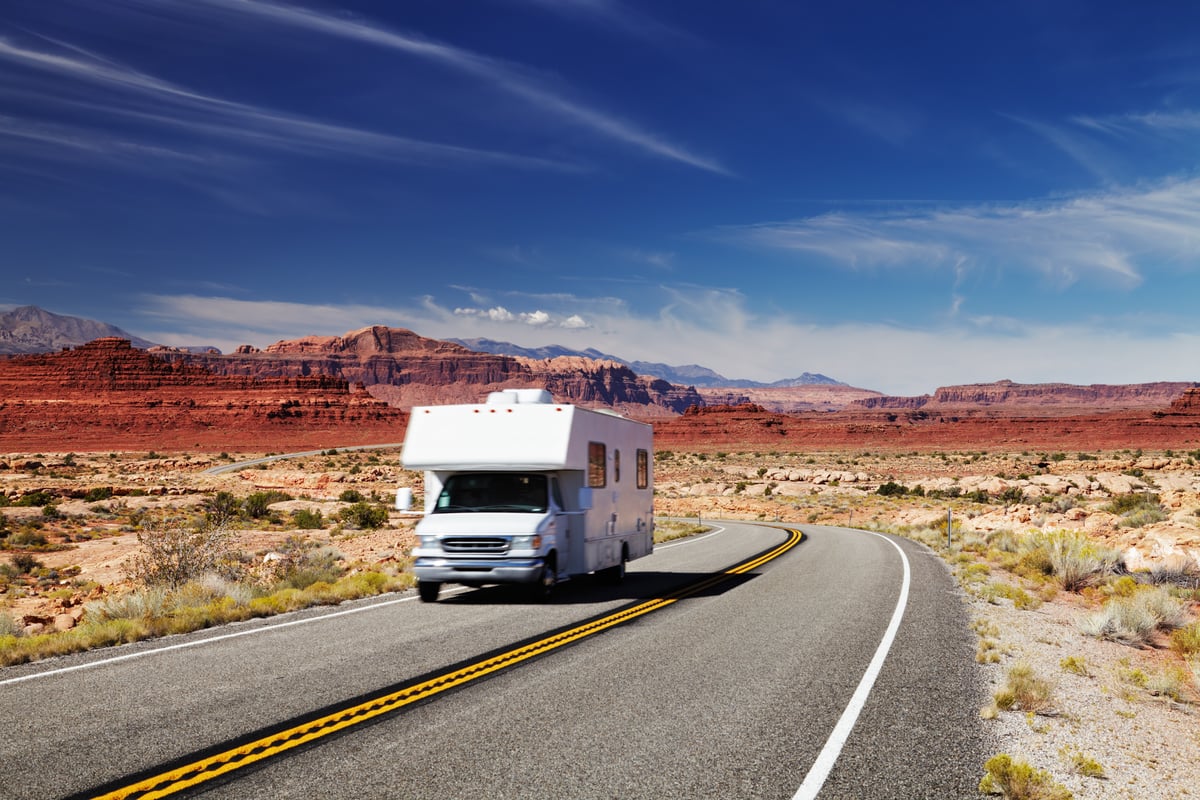
These simple tips can help you go green while RVing and helps to preserve the wildlife around us.
Plan on taking a road trip soon? Download our free road trip guide for six epic road trips.
